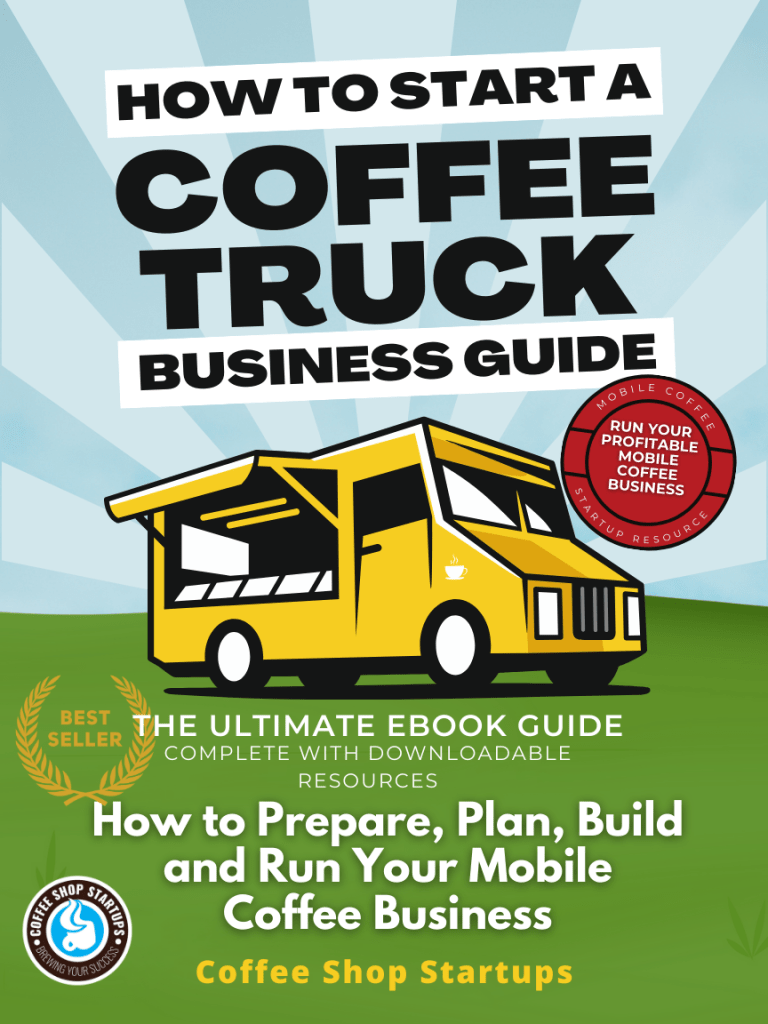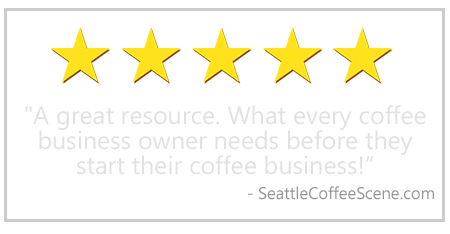How to Start a Coffee Truck Business in Colorado
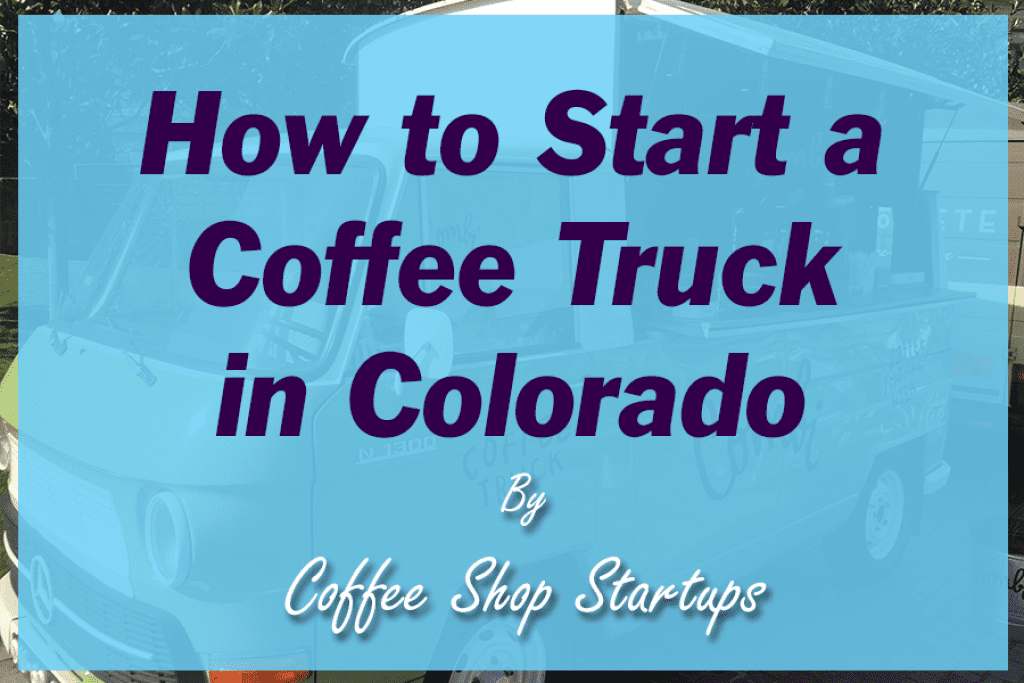
Start a Coffee Truck in CO
How to Start a Coffee Truck Business in Colorado
 There are many great reasons to start a coffee truck business in Colorado.
There are many great reasons to start a coffee truck business in Colorado.
The growing trend for street vending in cities and towns everywhere, including Colorado, makes it appealing for coffee entrepreneurs to consider opening a mobile coffee business.
Additionally, local and state leaders in Colorado are rediscovering the need to re-invigorate public spaces, parks, downtown metro areas, and streets to pedestrian traffic.
Coffee trucks and coffee trailers make an excellent addition to many cities' overall goals to spur local business activity, safety, and commerce. And they will be great in Colorado.
In this post, we'll talk about how to start your coffee truck in Colorado. For a more in-depth discussion, read our post, How to Start a Coffee Truck Business.
Further Reading: Do Coffee Trailers Make Money?
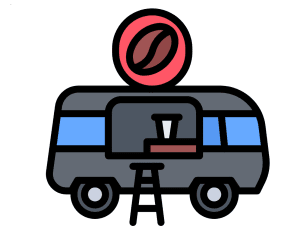
Mobile Coffee Business in Colorado
How Much Does It Cost To Start a Coffee Truck in Colorado?
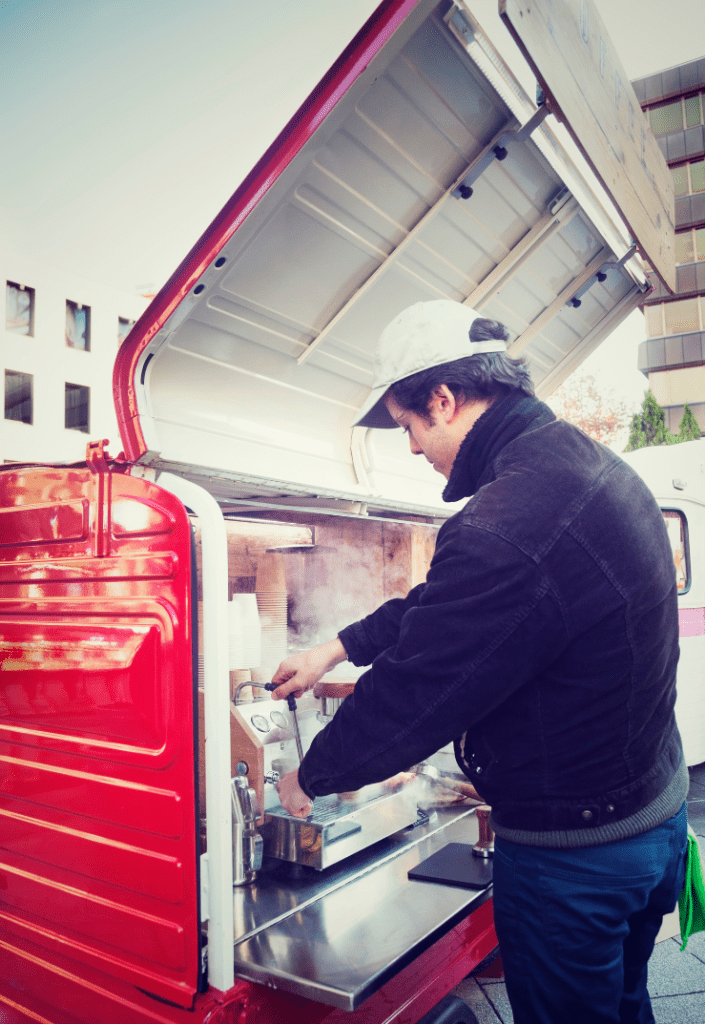 The costs of starting a coffee truck in Colorado depend on several factors that can add up quickly.
The costs of starting a coffee truck in Colorado depend on several factors that can add up quickly.
For example, the cost of the coffee truck or coffee trailer structure itself, building it out (remodeling) to serve coffee, and the contract labor, marketing, power, and installing equipment costs – all depend on how big you want to go.
Costs include:
- Coffee truck or trailer
- Building it out
- Coffee equipment
- Labor costs
- Marketing
- Inventory
Because of all these factors, you can easily have a wide spectrum of startup costs.
As you probably know, everything adds up. However, you can estimate that a typical coffee truck can cost anywhere from $15,000 to $100,000. From our observations, the average used coffee truck (no equipment) is often skewed slightly towards the $35,000-$60,000 range.
Available Now:
Get the Coffee Truck Business E-book:
![]()
How to Start a Coffee Truck
Steps to Starting a Coffee Truck in Colorado
Below is a list of key steps you will want to take to start your coffee truck business. Consider each of them as you set out to plan and launch your mobile coffee business.
1. Decide on a Coffee Truck Concept.
There are a variety of mobile coffee concepts to choose from. Take time to discover what your options are. Start by visiting a few existing coffee trucks or trailers in your area. Even if you already have an idea, a real-world visit can help you determine what direction you would like to move towards.
Your concept is essentially the practical representation of your vision. In essence, it is recommended that you properly develop your mobile coffee vision before moving forward.
2. Your Coffee Truck Funding.
Your coffee truck will require startup funds. Ultimately, how much money your coffee truck will cost will depend on the concept you have decided to pursue.
Consider exactly how much money you will have access to acquire your coffee truck and build it out. This coffee startup funding mix may be from your savings, a business account, investments, etc.
If you have some money set aside for your coffee truck business but may need to borrow the rest (investors or loans), you will want to know approximately how much you'll need.
As you develop your plan and budget, you will want to determine how you will fund your mobile coffee business. First, consider all of your financial resources. Those resources are solidly in your possession, as well as other resources that you may have to borrow from.
3. Coffee Truck Target Customers.
Colorado is a vibrant state with different people with different interests and tastes.
When starting any coffee business, you want to stay focused on your customers throughout your entire process. For mobile coffee businesses, staying laser-focused on your target customers will be your biggest goal.
- Who do you imagine serving your coffee to?
- Will you work at private events, ticketed festivals, community farmers markets, or other special dates like weddings and anniversary parties?
- Will you be serving tourists or locals?
- Or any combination of these?
The Colorado customers you plan to serve will have a significant impact on your menu. Likewise, your coffee menu will impact your need for coffee equipment. In turn, your coffee equipment will determine your need for physical space, and so on.
Indeed, your coffee business costs are never really independent of one another. They are all connected. Knowing who your ideal customer is will help you make some pretty important decisions.

Get The
Ultimate Mobile Coffee Business E-book
4. Your Coffee Truck Budget.
Now that you know your concept and customers, it's time to focus on your budget. The amount of money you have to put towards your coffee shop will either determine your coffee shop concept or alter it in some fundamental way.
Business concepts are all wonderful until they quickly hit the wall of financial constraints.
So, remember your entire coffee truck budget from the beginning because it will ultimately dictate how far you will go. Thinking and assuming that “The money will come to me somehow” may not be the best approach.
5. Your Coffee Truck Equipment.
Once you've determined your concept, your target customer, your budget, and your coffee truck menu, you will be able to focus on your coffee equipment.
Your coffee equipment is the bread and butter of your mobile coffee business. Without it, you will be hard-pressed to provide coffee to your customers.
6. Your Coffee Truck Power.
When you are in a coffee truck or coffee trailer, you'll have to figure out how you will power your coffee operation. Indeed, it will take power to run your equipment. Will you use an extension cord and power up to an available power outlet? Will you hook up to a generator instead?
The power and wattage you'll need are essential considerations for any mobile coffee business. Each piece of equipment will draw power. Hopefully, you'll know what kind of power you'll require before building out your coffee bar and buying your coffee equipment.
7. Write Your Coffee Truck Business Plan.
Having a well-written mobile coffee business plan will make life easier for you as you move forward with your mobile coffee business. Now that you have the information from our tips above, you should be ready to write your coffee business plan down.
Your investment in time and effort to write your business plan will certainly pay off – likely saving you money, time, and future headaches.
8. Coffee Truck Health Department Regulations.
Colorado will have their health code regulations you need to abide by. Knowing the requirements mandated by your local health department is something you need to determine long before you decide which coffee truck to buy and certainly before you build it out.
Our strong recommendation is that before you buy your new or used coffee truck, you should also review the regulations of your local health department in the jurisdiction you plan to do business in. Unfortunately, it's quite common to invest a lot of money in your setup only to have it unable to pass inspection.
9. Get Your Mobile Coffee Truck.
Getting your mobile coffee truck is the exciting part! Now that you have written your plan, develop your budget and consider your funding. Then, it's time to procure your coffee truck.
You have a few options to set up your coffee truck for your business. You can either refurbish or retrofit an existing truck, or you can buy a coffee truck or coffee trailer.
There are plenty of options to find used trucks on sites like Craigslist, where you can buy a used truck. There are also food truck manufacturers that can produce a coffee truck to your specifications.
10. Get Barista Training.
Serving great coffee to your customers is a must. If you have not been a barista, it might be helpful to get barista training. Most likely, you will be the primary person serving coffee. That is until you hire someone. In this case, your responsibility for training your employees will be an essential part of your job.
Even if you have had experience as a barista, refreshing your barista skills will improve your overall coffee business. It will enhance customer experience, as well as eliminate waste. If you decide to hire baristas, one of your main jobs as a coffee shop business owner is to hire amazing baristas. They will ultimately be the face of your business and will either drive or hurt sales.
Open a Mobile Coffee Business in Colorado
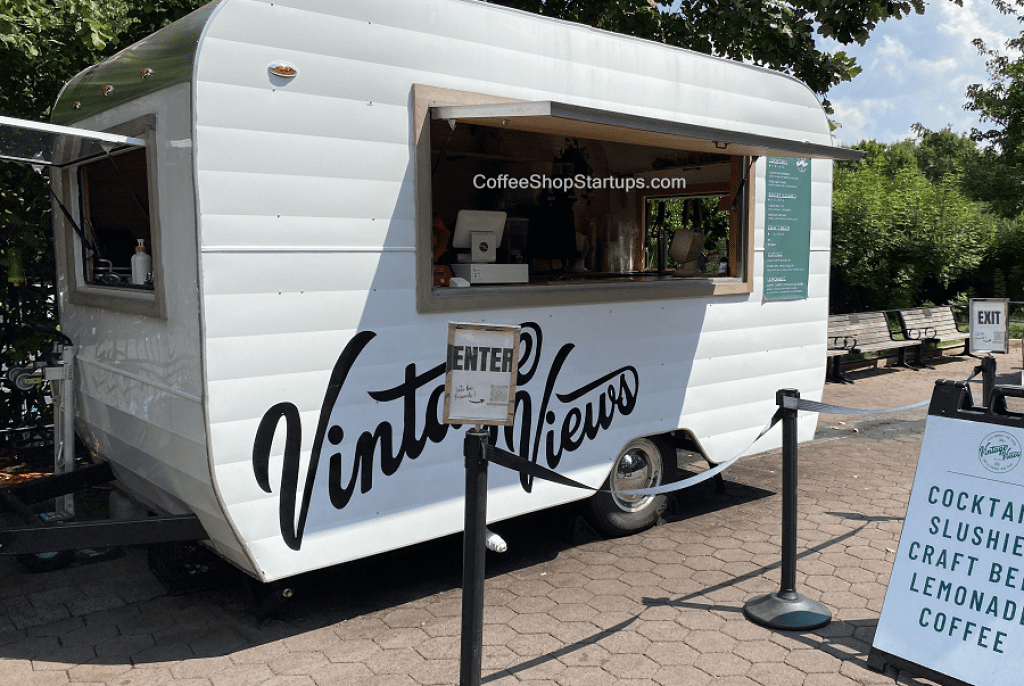
11. Develop Your Mobile Coffee Marketing Plan.
Coffee can be a competitive business. You need to stand out. So, as you start your coffee truck business, you'll want to have a marketing plan to help generate buzz.
The basics of a marketing plan require you to develop a brand, logo, and position in your niche. You want to support your brand with a coffee business website, cards, and social media accounts. Face-to-face networking and community outreach are also important.
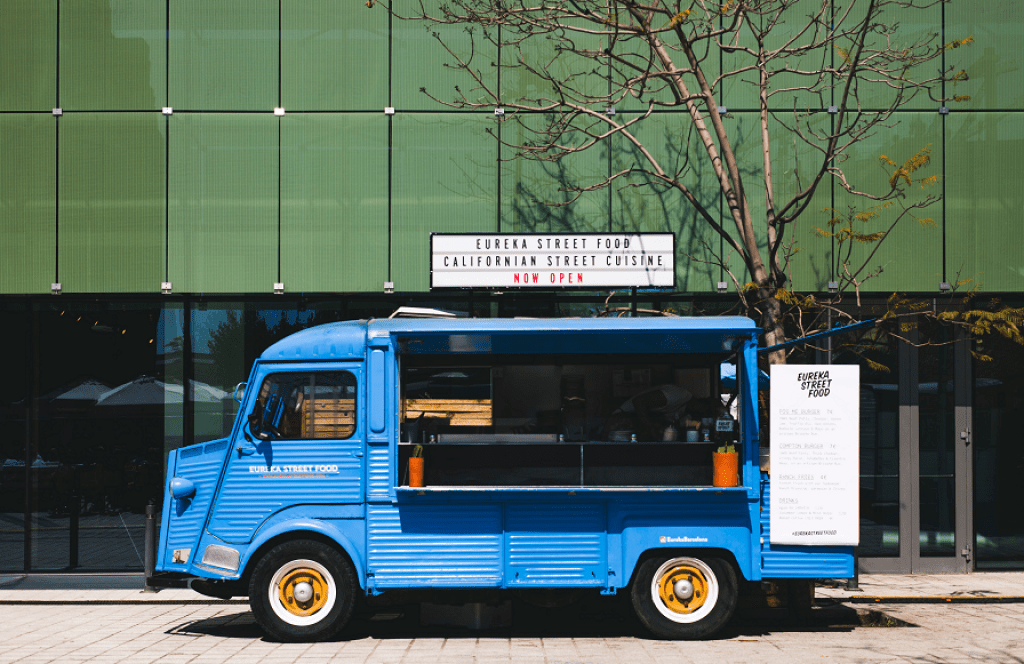
How to Start a Coffee Truck in Colorado
Understand Your Requirements and Permits Needed
Before your mobile coffee business can serve any coffee in Colorado, you must get a permit through your local or county agencies.
Depending on your location, this process could be more cumbersome in some locations than others.
For starters, I would recommend working with agencies in the locale you are planning to do business in – and not necessarily the city where you live (unless, of course, you are also planning to do business there).
If you plan on working in several cities or counties, you should decide where exactly you will be early on in the process of planning your coffee truck business. Once you determine where you operate your mobile coffee business, you'll need to determine all the requirements you'll need to satisfy before you are issued permits and licenses.
Establish Your Coffee Truck Business in Colorado.
You’ll want to set up your coffee truck or coffee trailer business as a legal entity in your state. This is usually done through the Colorado Secretary of State's office. While you will have several options, it's our observation that many coffee businesses appreciate the benefits of establishing an LLC.
![]()
Start a Coffee Truck in Colorado
Colorado State Business Links
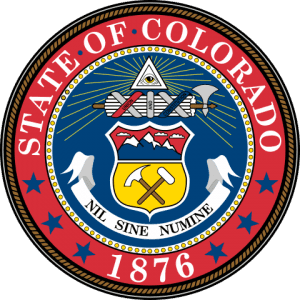 Setup Your Business Structure in Colorado
Setup Your Business Structure in Colorado
Colorado Business Formation
Register Your Business in Colorado
Register your Colorado Business
Colorado Food Handler’s Card
Colorado Food Handler's Card
Food Truck Association of Colorado
FB Colorado Food Truck Association
Further Reading: How to Open a Coffee Shop in Colorado
Best Locations to Operate a Coffee Truck in Colorado
Colorado is known for its active outdoor lifestyle, booming cities, and strong coffee culture, making it a great state for a mobile coffee business. Here are some of the best locations to set up your coffee truck:
- Downtown Business Districts – Cities like Denver, Boulder, and Colorado Springs have a thriving workforce that relies on quick, high-quality coffee during the workday.
- University Campuses – Schools like the University of Colorado (Boulder), Colorado State University, and the University of Denver have thousands of students and faculty looking for their daily caffeine fix.
- Outdoor & Adventure Hotspots – Colorado has an active, outdoorsy population, making locations near hiking trails, ski resorts, and national parks ideal for mobile coffee businesses. Target areas like Rocky Mountain National Park, Breckenridge, Vail, and Aspen.
- Farmers Markets & Food Festivals – Markets like the Boulder Farmers Market and Denver Union Station Farmers Market attract thousands of locals and tourists looking for craft coffee.
- Sporting Events & Stadiums – Set up near Empower Field at Mile High (Denver Broncos), Coors Field (Colorado Rockies), and Ball Arena (Denver Nuggets & Avalanche) to take advantage of event traffic.
- Ski Resorts & Mountain Towns – Winter destinations like Aspen, Vail, Breckenridge, and Telluride have high demand for warm drinks, especially from skiers and snowboarders.
- Music Festivals & Concert Venues – Red Rocks Amphitheatre, one of the most iconic concert venues in the country, hosts concerts, yoga sessions, and sunrise events, making it a great place to sell coffee.
Since Colorado cities have varying mobile vending laws, check with each city and county health department before setting up your coffee truck.
Seasonal Considerations for Running a Coffee Truck in Colorado
Colorado experiences all four seasons, from snowy winters to hot summers, meaning your menu and business strategy should adapt to customer preferences throughout the year.
- Winter (December–February)
- Hot drinks dominate—lattes, mochas, and spiced chai are customer favorites.
- Target ski resorts, winter markets, and mountain town events to capitalize on cold-weather demand.
- Offer high-energy, warming beverages like Mexican hot chocolate, turmeric lattes, and matcha for customers coming in from the cold.
- Spring (March-May)
- As hiking and outdoor activities pick up, offer lighter, refreshing drinks like honey lavender lattes, floral teas, and cold brews.
- Farmers markets reopen—position your truck near outdoor markets and spring festivals.
- Colorado weather can be unpredictable, so be prepared for both warm and snowy days!
- Summer (June–August)
- Iced coffee, cold brew, and energy-boosting drinks are essential in hot weather.
- Set up near music festivals, hiking trailheads, camping sites, and lakes like Grand Lake or Dillon Reservoir.
- Offer plant-based and organic options, as Colorado has a strong health-conscious customer base.
- Fall (September–November)
- Football season kicks off—set up near the University of Colorado, Denver Broncos games, and tailgating events.
- Introduce seasonal flavors like maple lattes, pumpkin spice drinks, and cinnamon mochas.
- Target fall festivals, apple orchards, and craft beer events to align with Colorado’s strong foodie culture.
By adjusting your menu, location, and hours to fit Colorado’s seasonal trends, you can keep sales high while catering to your customers’ changing preferences.
Other CSSU Articles:

Start A Coffee Truck in Colorado
Steps to Start a Coffee Truck Business
- First, Decide on a Coffee Truck Concept.
- Next, assess your current financial resources.
- Consider who your customers are.
- Develop your budget around your coffee truck concept.
- Consider which coffee trailer equipment you will need.
- Consider your power needs.
- Write your mobile coffee business plan.
- Understand local health department regulations.
- Get your mobile coffee truck.
- Get barista training.
- Develop your mobile marketing plan.
Mobile Coffee Business Coaching
Starting a coffee truck is a great option for many would-be coffee entrepreneurs. Yet, starting a coffee truck requires you to consider several important factors before spending significant money.
We offer you an affordable mobile coffee consulting service that can help get your coffee truck off the ground. To get a consultation, contact us at contact@coffeeshopstartups.com.

Buy The
Ultimate Coffee Trailer Ebook
Delivered Instantly

